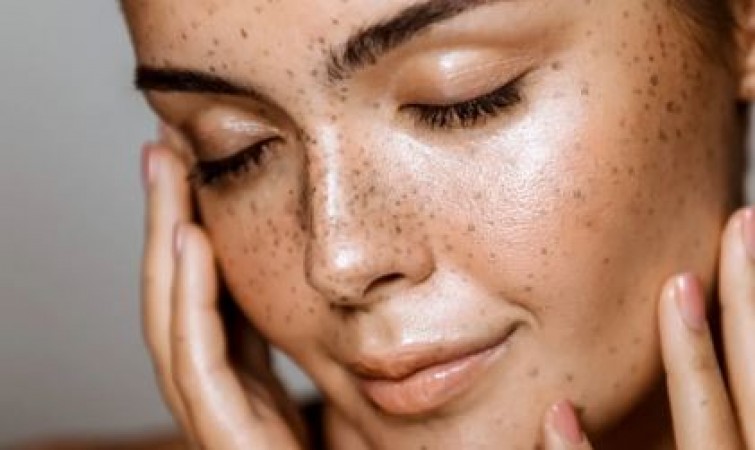
In our daily lives, protecting our skin from the sun often takes a backseat to other priorities. Yet, the consequences of UV exposure can be severe, ranging from premature aging and wrinkles to more serious risks like skin cancer. Sunscreen is universally recognized as the best defense against these harmful effects due to its ability to block ultraviolet (UV) rays. However, there are instances where sunscreen might not be readily available. In such cases, certain household items can provide limited sun protection, albeit with important caveats.
The Importance of Sunscreen
Sunscreen is specifically formulated to shield the skin from both UVA and UVB rays, which are the primary causes of skin damage and skin cancer. It works by either absorbing or reflecting these harmful rays before they penetrate the skin. The Sun Protection Factor (SPF) of a sunscreen indicates its effectiveness in blocking UVB rays, while broad-spectrum sunscreens also protect against UVA rays. Regular use of sunscreen is recommended by dermatologists and health experts to maintain skin health and reduce the risk of sun-related skin issues.
Common Household Alternatives
While nothing can replace the effectiveness of sunscreen, there are a few household items that can provide limited sun protection in a pinch. It's essential to understand that these alternatives offer minimal protection and should not be relied upon as a primary defense against sun exposure.
Coconut Oil
Coconut oil, often praised for its moisturizing properties, has a natural SPF of approximately 4-6. While it can offer some level of sun protection, its effectiveness is significantly lower compared to commercially available sunscreens. Coconut oil should not be considered a substitute for sunscreen but can be used as an additional layer of moisturization and protection on top of sunscreen.
Aloe Vera
Aloe vera gel is well-known for its soothing properties, especially for sunburned skin. While it does provide a minor level of sun protection due to its thick consistency, it is not a replacement for sunscreen. Aloe vera may offer some relief for mild sun exposure but is not sufficient protection against UV rays on its own.
Green Tea
Applying cold green tea to the skin is believed to offer antioxidant benefits and may provide a slight level of protection against UV damage. Green tea contains polyphenols, which have been studied for their potential photoprotective properties. However, relying solely on green tea for sun protection is inadequate, and it should be used in conjunction with other sun-safe practices.
Shea Butter
Shea butter is a natural moisturizer that also offers a low level of sun protection due to its thickness. With an estimated SPF of around 3-4, shea butter can provide some moisture and a slight barrier against UV rays. Like other household items, it should not be relied upon as the sole method of sun protection and is best used alongside sunscreen and protective clothing.
Limitations and Considerations
It's important to recognize the limitations of using household items for sun protection. While they may offer some benefits, they cannot match the comprehensive protection provided by sunscreen. Here are a few key considerations:
Effectiveness
Household items such as coconut oil, aloe vera, green tea, and shea butter provide minimal protection compared to sunscreen. Sunscreens undergo rigorous testing to determine their SPF ratings and efficacy in blocking UV rays, which household items lack. They should be viewed as supplementary rather than primary sources of sun protection.
SPF Ratings
SPF ratings are crucial in determining a sunscreen's ability to block UVB rays. A higher SPF indicates more protection, with SPF 30 and above being recommended for adequate sun protection. Household items like coconut oil and shea butter have much lower SPF ratings, making them insufficient for prolonged sun exposure without additional protection.
Practical Tips for Sun Protection
While household items can offer minimal sun protection, it's essential to incorporate other sun-safe practices into your routine for comprehensive skin care. Here are some practical tips:
Seek Shade
Avoiding direct sun exposure, especially during peak hours between 10 AM and 4 PM, reduces the risk of UV damage. Seek shade under trees, umbrellas, or buildings when outdoors for extended periods.
Wear Protective Clothing
Clothing provides excellent physical protection against UV rays. Opt for tightly woven fabrics, long sleeves, and wide-brimmed hats to shield your skin from the sun's harmful rays. Sunglasses with UV protection also safeguard your eyes and the delicate skin around them.
Hydration
Staying hydrated supports overall skin health and can enhance your skin's resilience against sun damage. Drink plenty of water throughout the day, particularly in hot weather or during outdoor activities. While household items like coconut oil, aloe vera, green tea, and shea butter can offer minor sun protection benefits, they should not be relied upon as substitutes for sunscreen. Sunscreen remains the gold standard for protecting your skin from UV rays, offering superior and reliable defense against sun damage. Incorporate these household items into your skincare routine for added moisture and potential antioxidant benefits, but always prioritize sunscreen when it comes to sun protection. By combining multiple strategies—such as seeking shade, wearing protective clothing, staying hydrated, and using sunscreen—you can effectively safeguard your skin and enjoy the outdoors safely.
This is going to be your day today, know your horoscope
Today will be a happy day for the people of these zodiac signs, know your horoscope
Tomorrow's Horoscope Predictions for Leo, Libra, Capricorn, and Pisces